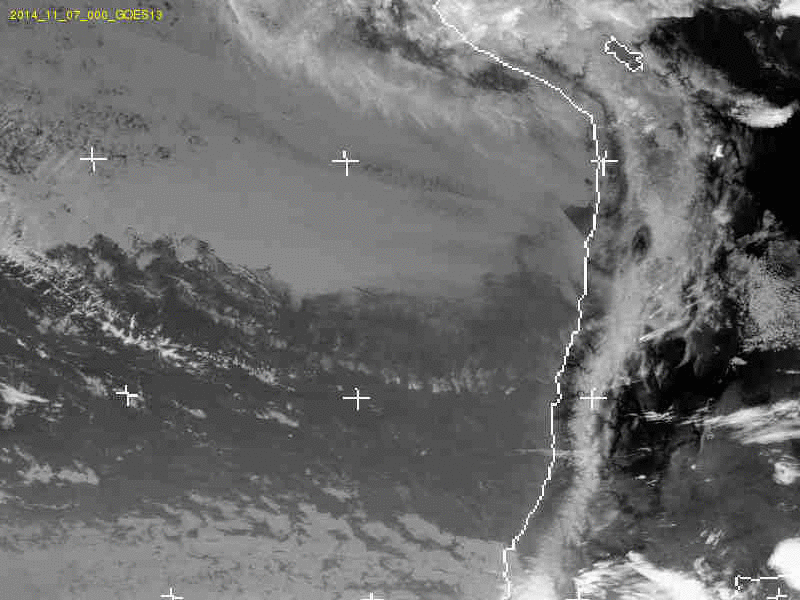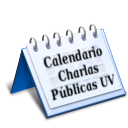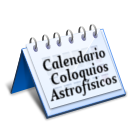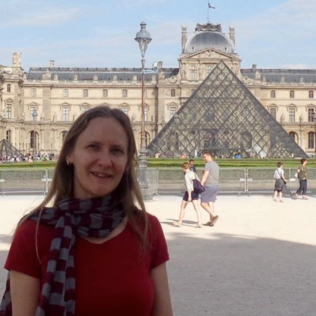
PhD: Pontificia Universidad Católica de Chile (2011)
Research Area: Evolution of Close Compact Binaries, Common Envelope Phase, Cataclysmic Variables, SNe Ia progenitors, Planets Around Evolved Binaries
Publications: ADS
Telephone: (+56 32) 299 5556
email: mzorotovic at dfa.uv.cl
Webpage: https://sites.google.com/site/mzorotovic/
About my research: My work is focused on the simulation of close compact binary stars, and the comparison of these with observational data. The aim is to achieve a better understanding of the common envelope phase, a phase that most of these stars undergo, which is a clue for understanding the evolution of some of the most interesting objects in the universe, such as type Ia supernovae, cataclysmic variables, or close double white dwarfs, to name a few. In addition, the recently suggested possibility of planets around evolved close compact binaries has raised the interest in knowing how they might have formed.
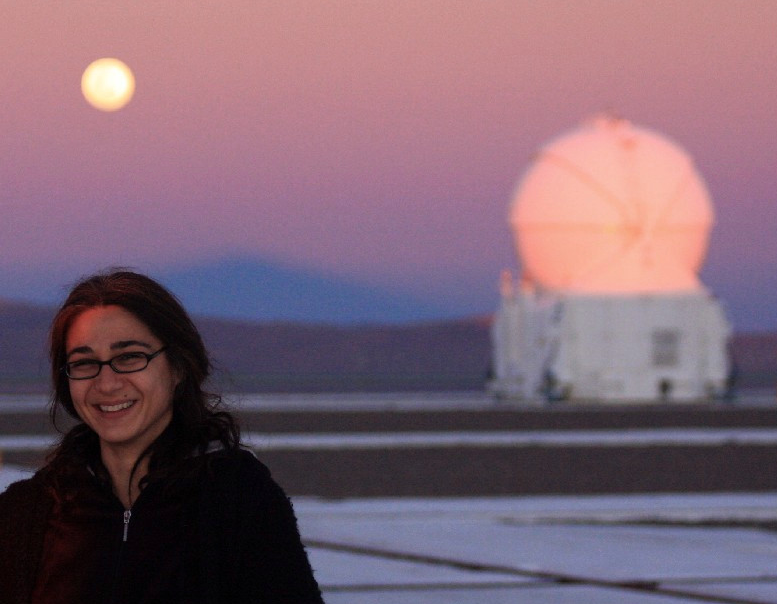
PhD: Institute of Astronomy, KU Leuven, Belgium (2009)
Research Area: Evolution of hot subdwarf stars, compact pulsators, close binary stellar evolution, asteroseismology
Publications: ADS
Telephone: (+56 32) 250 8304
email: maja.vuckovic at uv.cl
About my research: My research focuses on understanding the origin and evolution of extreme horizontal branch stars, by probing the internal structure of pulsating hot subdwarf stars through the interpretation of their frequency spectra. In order to analyse their pulsation spectra I am using the high-resolution time series photometric and spectroscopic data from ground based and space telescopes, like Kepler. By confronting the observed frequency spectrum with the theoretical models I am able to constrain crucial parameters in order to backtrace the evolution of hot subdwarf stars. In addition to asteroseismology I also study close binary stellar evolution, as well as extrasolar planets around evolved stars.
Teaching: "Stellar astronomy", FIS320, 2nd semester 2014
See my research in: Hot Subdwarf Stars - Substellar Objects around Evolved Stars - Data Bases, Surveys and Virtual Observatory - Variabilidad (Astroestadística)
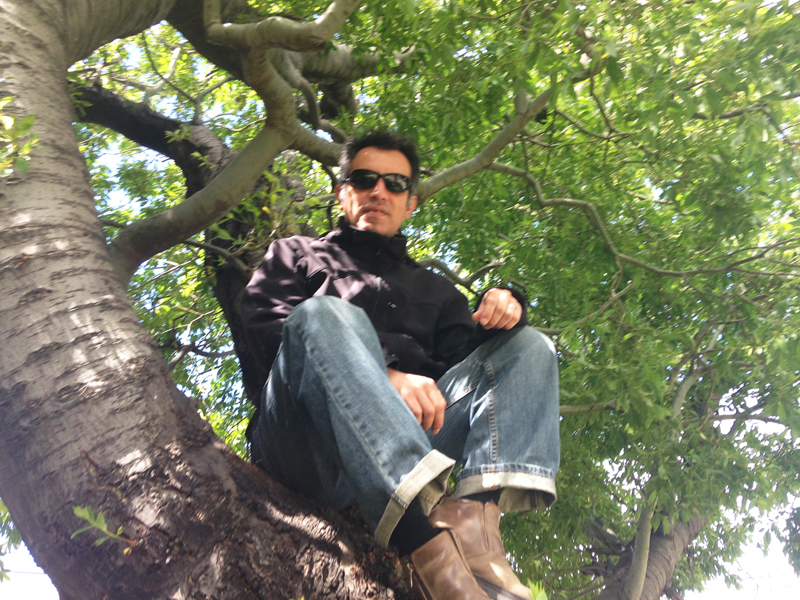
PhD: Pontificia Universidad Católica de Valparaíso.(2010)
Research Area: Inflation; reheating; dark energy (DE); dark matter (DM); DE-DM interaction; geodesics; tests of general relativity; exact solutions
Publications: INSPIRE
Telephone: (+56 32) 299 5557
email: jose.villanuevalob at uv.cl
Página web: www.dfa.uv.cl/~jose
About my research: My main research areas are the theory of gravitation and cosmology. In gravitation, my interest resides in the study of the motion of particles (neutral and electrically charged) across different space-times, putting special attention on the classical tests of the general relativity to compare it with availables observational data. In cosmology, I focus on the study of the dynamic behavior of the universe at different epochs, especially in the inflationary era and the accelerated expansion regimen, using alternative models which are tested using the most current data available.
Teaching: Classical Mechanics, Statistical Mechanics, Waves and Optics; Laboratory of electromagnetism; Cosmology; General Relativity; Nuclear Physics; Physical Processes in Astrophysics.
See my research in: Cosmology - Gravitaction
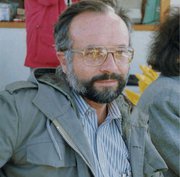
Dr.rer.nat: Universidad de Rühr, Bochum, Alemania (1969)
Research Area: variable stars, cataclysmic binaries, classical novae, dwarf novae, post-common envelope binaries (PCEBs), Mira stars, long-term stellar variability with low amplitude; young low-mass binaries or multiple systems.
Publications: ADS
Telephone: (+56 32) 299 5552
email: nikolaus.vogt at uv.cl
About my research: In collaboration with Claus Tappert and an international workgroup I am carrying out a project for recovering classical Novae, more than 30 years after their eruption, by using spectroscopy and photometry on the remnants, determining orbital periods and other essential parameters to better understand the relation between Novae and other subclasses of cataclysmic variables. I am also leading another international project that analyzes observations of the cataclysmic binary TT Ari, obtained with the Canadian Space Telescope MOST in 2007 and 2012. Together with our students I am obtaining and analyzing our own observations of post-common envelope binaries (PCEBs) and other types of variable stars. In addition, we are utilizing the ASAS data-base in order to investigate properties of pulsating Mira stars, as well as the behavior of long-term variables with low amplitude. - In collaboration with astronomers of the Universities of Jena and Hamburg, Germany, I am carrying out research on young stars of low mass. This project is based on observations made with the NACO instrument of Paranal Observatory (ESO) which allows infrared photometry, high-angular resolution, and precise astrometry of stars in star forming regions and their companions and their stellar and substellar companions (brown dwarfs and planets).
Teaching: Introductory course in astronomy, optional courses (astrobiology, variable stars); undergraduate seminars and dirección of thesis in Master program of Astrophysics.
See my research in: Cataclysmic Variables and Novas - Substellar Objects - Planet and Star Formation - Variability

PhD: Universidad Federico Santa María (2009)
Research Area: Gauge / Gravity Dualities, Hadron Physics, AdS / QCD
Publications: INSPIRE
Telephone: (+56 32) 250 8228
email: alfredo.vega at uv.cl
About my research: Application of Gauge / Gravity dualities in Hadronic Physics in the Bottom - Up approach using AdS / QCD models as well as Light Front Holography. Study of very energetic Cosmic Rays and some aspects of hadronic phenomenology using quark potential models.s.
Teaching: Mechanics, Mathematical Methods of Physics I and II, Contemporary Physics.
See my research in: Particle Physics - Gravitation



